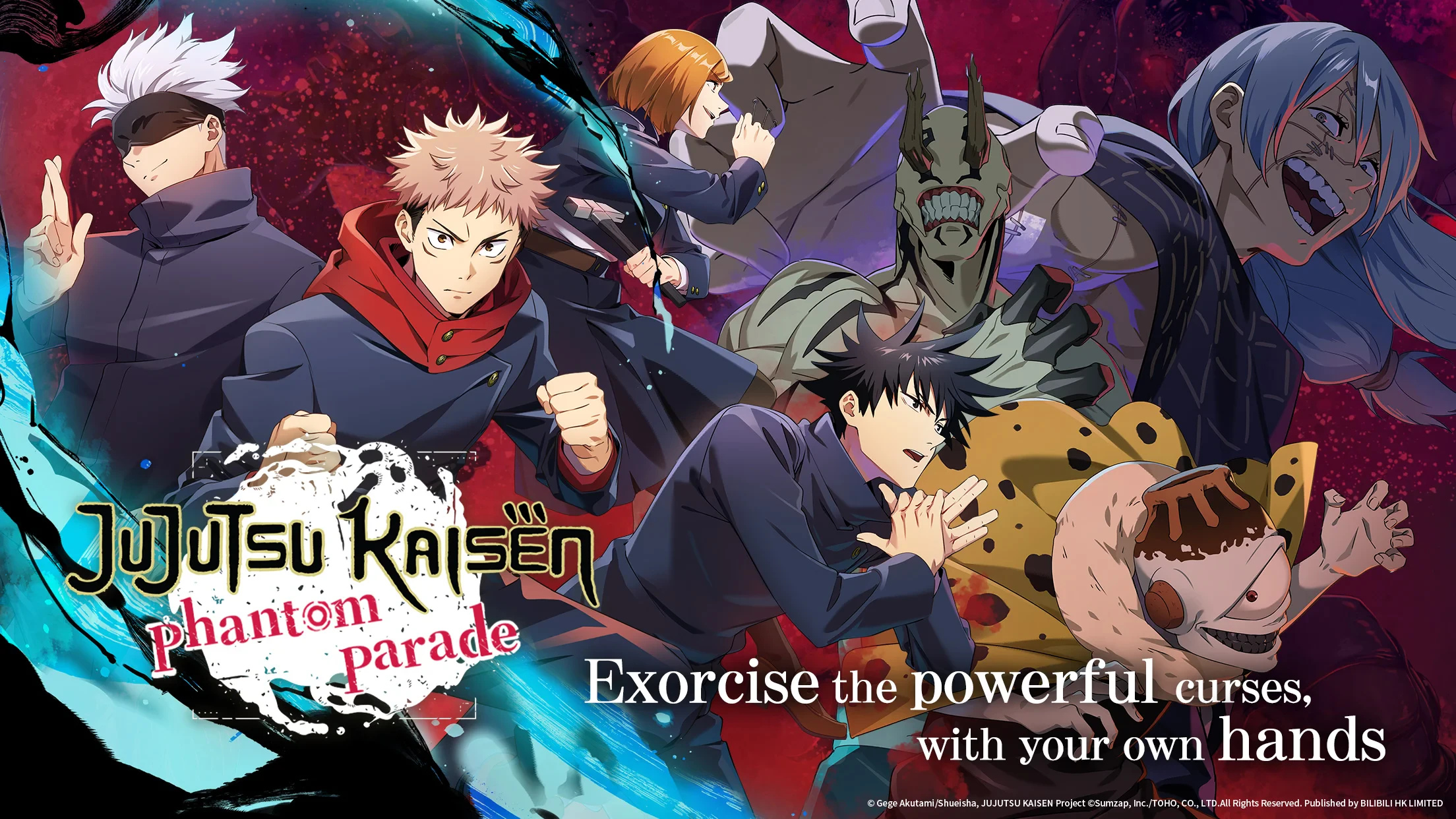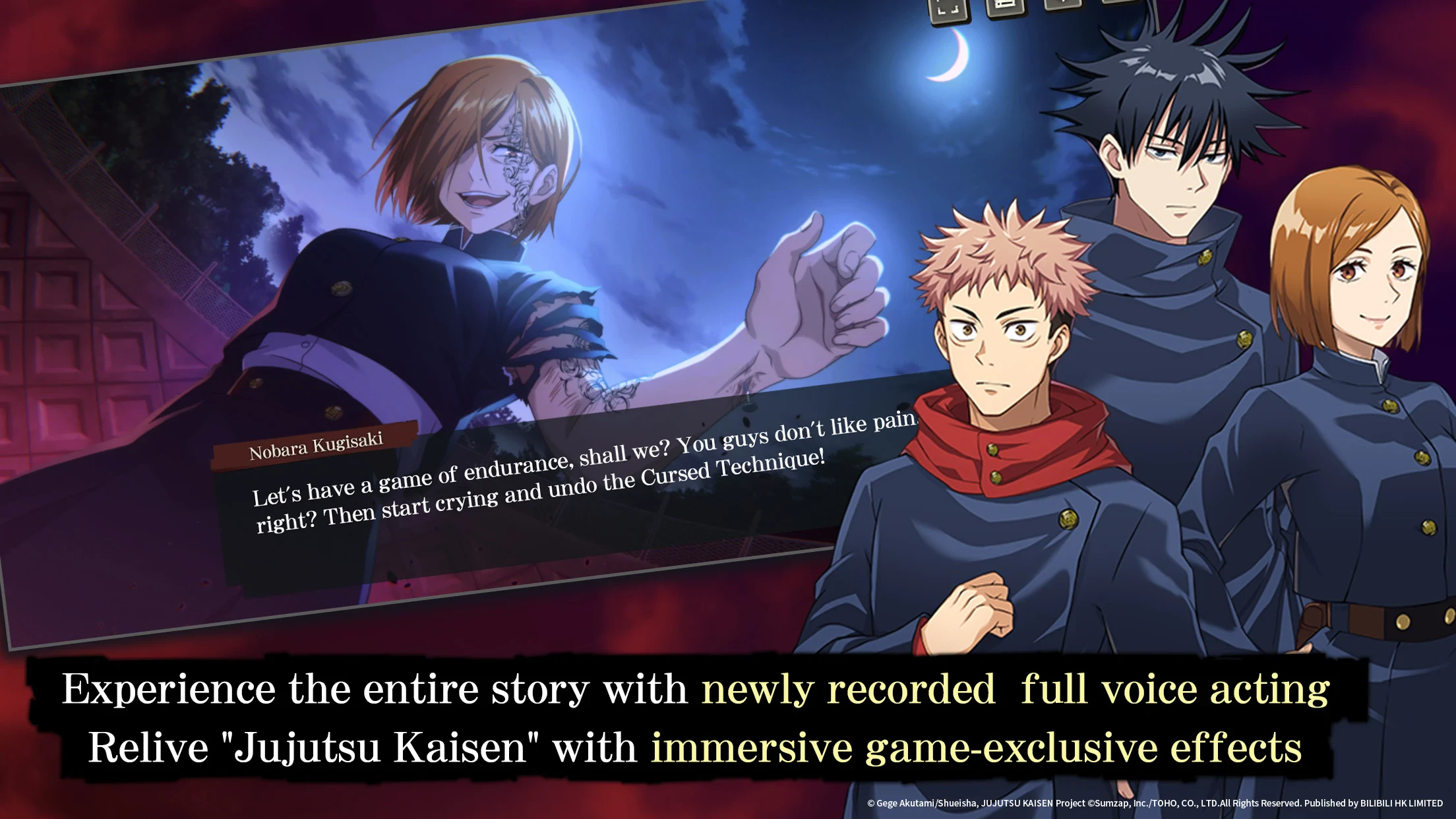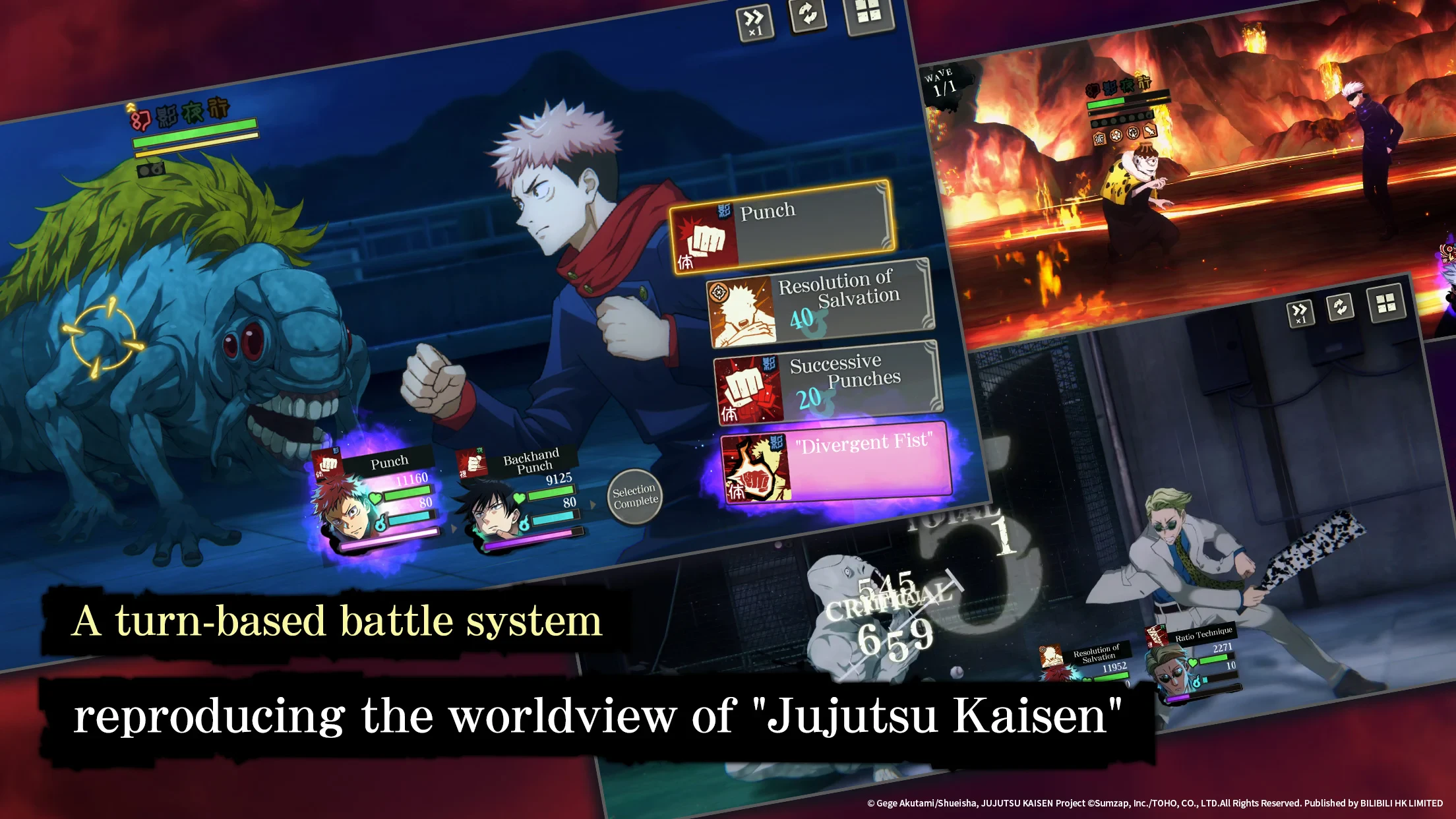 |
|
| Rating: 3.5 | Downloads: 5,000,000+ |
| Category: Role Playing | Offer by: BILIBILI |
“Jujutsu Kaisen Phantom Parade” is a rhythm-based music game developed by Bushiki, serving as a spin-off title within the popular “Jujutsu Kaisen” franchise. Belonging to the musical rhythm or beat-em-up genre, the game allows players to experience the Battle Spirit of Jujutsu Kaisen as they follow on-screen prompts to hit notes, often coordinating with character abilities tied to their jujutsu specialties. It’s interesting due to its blend of anime action, familiar characters, and the adrenaline of timing-heavy gameplay.
The gameplay of “Jujutsu Kaisen Phantom Parade” is centered around survival and clearing increasingly difficult Instrumental Stages synchronized to music. Its visual style is vibrant and distinct, capturing the theatrical flair and stylish designs of the anime, bringing characters to life in dynamic, often fast-paced encounters. The storyline appeal stems from unlockable content tied to the Jujutsu Kaisen universe, battling iconic figures and immersing players in its magic system through gameplay events.
Gameplay and Features
- [Core Gameplay Loop]: The main mechanic involves players pressing rhythm buttons on their device timed to on-screen indicators as music plays, enabling their chosen character to unleash attacks against a colossal mecha-like enemy known as the Shin Shibai. Objectives include surviving waves, using character skills strategically, and adapting to different attack patterns for points.
- [Visuals or Art Style]: The graphics utilize a colorful, cartoony aesthetic derived directly from the “Jujutsu Kaisen” anime, featuring detailed character models, fluid animations, and vibrant stage backgrounds.
- [Modes or Levels]: Single-player mode offers a core campaign with various difficulty levels and unlockable stages. Multiplayer features allow competing or co-op play through certain challenges, boosting replay value with leaderboards, alternate outfits, and characters released incrementally.
- [Controls or Interface]: Gameplay is touch-based on mobile devices. A simple on-screen button matrix guides finger placement for rhythm-based attacks, making control intuitive for casual and experienced players alike.
- [Customization or Power-ups]: Players can customize their experience with various characters and tracks as they progress. Unlockable hairstyles, emblems, and sticker packs encourage prolonged play, alongside skill upgrades providing strategic depth.
- [Any Special Systems]: The game features ‘Character Resonance’ levels which unlock by playing specific songs related to chosen characters, and offers limited-time ‘Shadow Event’ stages introducing mini-boss battles, contributing unique thrill.
How to Play
Beginner’s Guide:
- Step 1: Download and install “Jujutsu Kaisen Phantom Parade” or scan the QR code (if applicable) via the provided link. Tap the Start/Play button to begin your first match.
- Step 2: During the initial stages, carefully press the rhythm buttons highlighted on-screen when filled. Survive the first few waves, aiming to match notes consistently to see your combo increase, unlocking basic character skills automatically if eligible.
- Step 3: After playing several stages, explore in-game shops using earned points (like PP or Certificates) to purchase character cards, modes, or customization elements. Level up your characters to enhance their stats and unlock powerful combo skills.
Pro Tips:
- Focus on pressing hit notes precisely: Leading or lagging your taps significantly reduces points; precision is key to high scores.
- Master character skill combinations: Learn the activation windows for character skills to maximize damage output during critical moments.
- Upgrade characters strategically: Prioritize skills that work well together or grant significant bonuses in the Shin Shibai beat-modes to build diverse and potent teams.
Similar Games
| Game Title | Why It’s Similar |
|---|---|
| Dynamix |
Shares a similar mobile rhythm game genre, focusing on timing-based attacks with a large roster. Known for fast-paced action and seasonal content updates alongside fun fan crossover events. |
| Karaoke Star! Sing Party! |
Appeals to the same type of players. Offers the unique challenge of rhythm-based gameplay interspersed with singing mini-games and stylized performance animations. |
| UmaMusume: Pretty Derby |
Popular among fans seeking deep customization and progression. Has comparable gameplay loops offering content spanning story arcs and grand events, plus excellent replay incentive through competitive racing modes. |
Frequently Asked Questions
Q: What platforms is Jujutsu Kaisen Phantom Parade available on?
A: “Jujutsu Kaisen Phantom Parade” is typically available for download on major mobile app stores like the App Store for iOS devices and Google Play Store for Android devices. Just search for the game title and follow the install prompts.
Q: How often does the music library in Jujutsu Kaisen Phantom Parade update?
A: The developers release new Instrumental Stages regularly – often new tracks every week – featuring the official Jujutsu Kaisen soundtrack, alongside community submissions sometimes, keeping the game fresh and consistently adding content for players.
Q: Can two players play Jujutsu Kaisen Phantom Parade together?
A: Sure! While single-player offers a deep experience, “Jujutsu Kaisen Phantom Parade” includes Multiplayer modes such as VS battles and exclusive Co-op events, where you can team up with friends on the same device or online (if the specific update supports it).
Q: How do I change my character in Jujutsu Kaisen Phantom Parade?
A: Accessing the character selection usually happens when starting a Stage or Challenge directly from the in-game menu or in-game shop once you earn the currency needed. Each character may have specific acquisition routes (unlock by playing certain songs, using PP/Certificates, or purchasing in the shop).
Q: How does the difficulty escalate in Jujutsu Kaisen Phantom Parade as I progress?
A: As you climb levels, the game introduces higher-difficulty maps (“Shin Shibai”) with faster tempos, harder timing parameters, and complex attack patterns requiring precise button control. Slower “Normal Shibai” stages provide space for practice, while “Insane Shibai” modes cater to the most dedicated players facing anime-level challenge.
Screenshots
 |
 |
 |
 |
